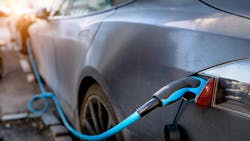Report says nearly 50 percent of EV drivers want to switch back to ICE vehicles
According to McKinsey & Co.'s 2024 Mobility Consumer Global Survey, interest in electric vehicles (EVs) isn't quite as high as it has been in the past few years, but it's still increasing. The survey also indicates that there are serious concerns about charging infrastructure and driving distance that are negatively influencing driver sentiment about EVs as a whole.
Of the nearly 37,000 people surveyed worldwide, 38 percent of those who don't already have an EV are considering one for their next vehicle. Of those that do have an EV, 29 percent of them are considering swapping back to an internal combustion engine (ICE) vehicle. That number is even higher for EV owners in the United States with 46 percent of respondents saying that they were very likely to buy an ICE vehicle rather than another electric vehicle.
Globally, the percentage of respondents who said they'd never switch to an EV remained the same as it was in 2022 at 21 percent. On the other hand, 18 percent said they're planning to buy an EV for their next vehicle, which makes for a 2 percent increase from 2022.
The primary reason for negative EV owner sentiment globally is simply that the public charging infrastructure isn't good enough to motivate drivers to stick with electric vehicles, with 35 percent of responses reflecting that. The next two most common responses are that the total costs of ownership are too high and that their driving patterns on long-distance trips were too impacted by driving an EV. Concerns about being unable to charge at home and having to worry about finding a place to charge were also named as reasons for not buying an EV.

